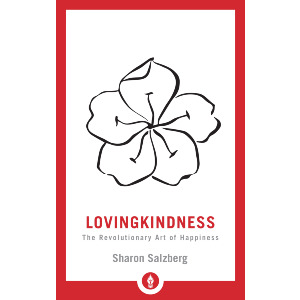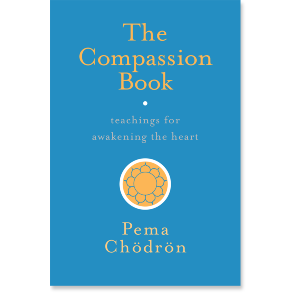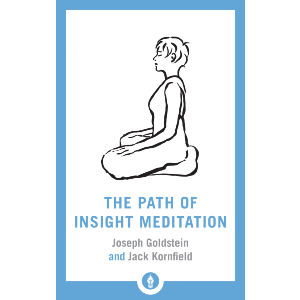Remembering the Good within You
Sit comfortably, in a relaxed way, and close your eyes. As much as possible, let go of analysis and expectation. For ten to fifteen minutes, call to mind something you have done or said that you feel was a kind or good action—a time you were generous, or caring, or contributed to someone’s well-being. If something comes to mind, allow the happiness that may come with the remembrance. If nothing comes to mind, gently turn your attention to a quality you like about yourself. Is there an ability or strength within yourself you can recognize? If still nothing comes to mind, reflect on the primal urge toward happiness within you, and the rightness and beauty of that.
In any of the above reflections, even if impatience or annoyance or fear should arise, don’t be disheartened or anxious—see if you can return to the contemplation without guilt or judgment. The heart of skillful meditation is the ability to let go and begin again, over and over again. Even if you have to do that thousands of times during a session, it does not matter. There is no distance to traverse in recollecting our attention; as soon as we realize we have been lost in discursive thought, or have lost touch with our chosen contemplation, right in that very moment we can begin again. Nothing has been ruined, and there is no such thing as failing. There is nowhere the attention can wander to, and no duration of distraction, from which we cannot completely let go, in a moment, and begin again.
The heart of skillful meditation is the ability to let go and begin again, over and over again.
Phrases of Lovingkindness
In doing metta practice, we gently repeat phrases that are meaningful in terms of what we wish, first for ourselves and then for others. We begin by befriending ourselves. The aspirations we articulate should be deeply felt and somewhat enduring (not something like “May I find a good show on television tonight”). Classically there are four phrases used:
“May I be free from danger.”
“May I have mental happiness.”
“May I have physical happiness.”
“May I have ease of well-being.”
I will describe these phrases here in detail, and you can experiment with them, alter them, or simply choose an alternative set of three or four phrases. Discover personally in your own heartfelt investigation what is truly significant for you.
“May I be free from danger.” We begin to extend care and lovingkindness toward ourselves with the wish that we may find freedom from danger, that we may know safety. We ultimately wish that all beings as well as ourselves have a sense of refuge, have a safe haven, have freedom from internal torment and external violence.
There is a nightmarish quality to life without safety. When we live repeatedly lost in conditioned states such as anger and greed, continually being hurt and hurting others—there is no peace or safety. When we are awakened at night by anxiety, guilt, and agitation—there is no peace or safety. When we live in a world of overt violence, which rests on the disempowerment of people and the loneliness of unspoken and silenced abuse—there is no peace or safety. This deep aspiration is the traditional beginning. “May I be free from danger.” Other possible phrases are “May I have safety” and “May I be free from fear.”
“May I have mental happiness.” If we were in touch with our own loveliness, if we felt less fearful of others, if we trusted our ability to love, we would have mental happiness. In the same vein, if we could relate skillfully to the torments of the mind that arise, and not nourish or cultivate them, we would have mental happiness. Even in very positive or fortunate circumstances, without mental happiness, we are miserable. Sometimes people use the phrase “May I be happy” or “May I be peaceful” or “May I be liberated.”
“May I have physical happiness.” With this phrase we wish ourselves the enjoyment of health, freedom from physical pain, and harmony with our bodies. If freedom from pain is not a realistic possibility, we aspire to receive the pain with friendliness and patience, thereby not transforming physical pain into mental torment. You might also use a phrase such as “May I be healthy,” “May I be healed,” “May I make a friend of my body,” or “May I embody my love and understanding.”
“May I have ease of well-being.” This phrase points to the exigencies of everyday life—concerns such as relationships, family issues, and livelihood. With the expression of this phrase we wish that these elements of our day-to-day lives be free from struggle, that they be accomplished gracefully, and easily. Alternative phrases could be “May I live with ease” or “May lovingkindness manifest throughout my life” or “May I dwell in peace.”
Reflection
Sit comfortably. You can begin with five minutes of reflection on the good within you or your wish to be happy. Then choose three or four phrases that express what you most deeply wish for yourself, and repeat them over and over again. You can coordinate the phrases with the breath, if you wish, or simply have your mind rest in the phrases without a physical anchor. Feel free to experiment, and be creative. Without trying to force or demand a loving feeling, see if there are circumstances you can imagine yourself in where you can more readily experience friendship with yourself. Is it seeing yourself as a young child? One friend imagined himself sitting surrounded by all the most loving people he had ever heard of in the world, receiving their kindness and good wishes. For the first time, love for himself seemed to enter his heart.
Develop a gentle pacing with the phrases; there is no need to rush through them, or say them harshly. You are offering yourself a gift with each phrase. If your attention wanders, or if difficult feelings or memories arise, try to let go of them in the spirit of kindness, and begin again repeating the metta phrases:
“May I be free from danger.”
“May I have mental happiness.”
“May I have physical happiness.”
“May I have ease of well-being.”
There are times when feelings of unworthiness come up strongly, and you clearly see the conditions that limit your love for yourself. Breathe gently, accept that these feelings have arisen, remember the beauty of your wish to be happy, and return to the metta phrases.
Breathe gently, accept that these feelings have arisen, remember the beauty of your wish to be happy, and return to the metta phrases.
Related Books
$12.95 - Paperback
$12.95 - Paperback
$19.95 - Paperback
$17.95 - Paperback
The Path of Insight Meditation
$12.95 - Paperback








